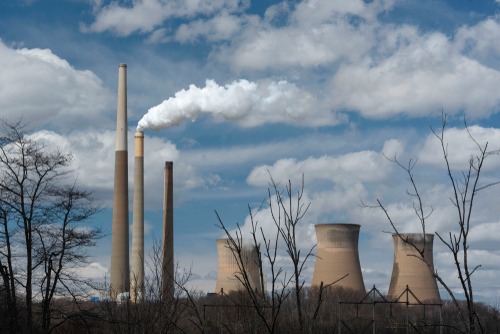
Republicans in the Pennsylvania State Senate launched another counterattack on the Regional Greenhouse Gas Initiative (RGGI) this week by firing off a letter to the state’s Independent Regulatory Review Commission (IRRC) urging it to reject a proposed cap-and-trade program that the commonwealth would operate under as part of the RGGI.
The letter was sent Wednesday by the Senate Environmental Resources and Energy Committee, chaired by staunch RGGI opponent Sen. Gene Yaw (R-23), ahead of the IRRC’s Sept. 1 meeting where the final rulemaking summary of the carbon plan approved last month by the Environmental Quality Board (EQB) will be considered.
“We believe IRRC’s rejection will help pave the way for a more constructive dialogue between the Governor’s Office and the General Assembly to consider common sense energy policy reforms that do not impair our economy and harm our constituents,” said the letter, which was signed by the committee’s Republican members but snubbed by the Democrats.
At a hearing Wednesday, the ranking Democrat on the committee, Sen. Carolyn T. Comitta (D-19) questioned the effectiveness of the letter to the IRRC and called it a gesture of “support of the past and the status quo.”
Gov. Tom Wolf has faced determined resistance to his executive order to prepare Pennsylvania to become the 12th state in the RGGI as early as next year. The goal of bringing Pennsylvania into the RGGI is to make meaningful cuts in the state’s greenhouse gas (GHG) emissions, which includes carbon trading.
Wolf has committed the state to a 26 percent decrease in overall GHG emissions by 2025 and 80 percent by 2050. The EQB’s approval of the new rules now must be approved by the IRRC, the House and Senate oversight committees, and by the state attorney general’s office.
The plan, however, has been fought tooth-and-nail by Republicans as well as energy interests, city governments, and labor unions that would be walloped by major reductions in the use of coal and natural gas to generate electricity, resulting in job losses, higher electric bills, and reductions in property tax revenues.
“The letter reflects the view of organized labor, business leaders and elected officials that the Regional Greenhouse Gas Initiative would impose a massive tax on all coal and natural-gas electric generation plants in the commonwealth and cause the loss of thousands of jobs without delivering the promised emissions-reducing benefits,” a written statement from Yaw’s office said.
The committee’s majority also repeated the idea Wednesday that any carbon dioxide (CO2) emission reductions in Pennsylvania would be offset by increased power generation by fossil-fuel plants in neighboring states that are not in the RGGI but are part of the PJM Interconnection, which oversees the regional grid that handles the interstate flow of electricity among 13 member states regardless of their generation source.
“The DEP [Department of Environmental Protection] data from its most recent modeling of RGGI’s impact on regional CO2 emissions concludes that 99.1% of all CO2 reductions in Pennsylvania would be offset by increases in CO2 emissions in non-RGGI PJM states, such as neighboring Ohio and West Virginia,” the letter said.
The letter said the proposed rulemaking “lacks any statutory basis and is opposed by wide bipartisan majorities in both chambers of the General Assembly,” and that Yaw and his committee would invoke its authority to extend its review of the rulemaking process for another 14 days.